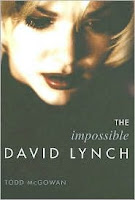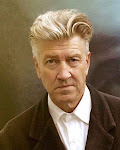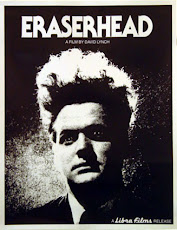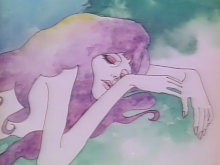***Please note: Clicking on the book covers will direct you to either the LAPL catalog or to Worldcat, in which the LAPL can request a loan for you.
 Davison, Annette (2004). The Cinema of David Lynch: American Dreams, Nightmare Visions. London: Wallflower Press
Davison, Annette (2004). The Cinema of David Lynch: American Dreams, Nightmare Visions. London: Wallflower PressA collection of twelve essays that attempts to help readers understand the difficulty of talking about Lynch. The book follows a chronological list of Lynch's work that was developed during the 1980s and 1990s. Each essay addresses a diverse subject, pushing toward a fuller account of the cultural and technological contexts. These essays perpetuate Lynch’s own tendency to integrate space and time, creating a fictitious America.
 Lavery, David (1994) Full of Secrets: Critical Approaches to Twin Peaks. Michigan: Wayne State University Press
Lavery, David (1994) Full of Secrets: Critical Approaches to Twin Peaks. Michigan: Wayne State University PressA collection of thirteen essays that incorporates David Lynch's politics, the impenetrable musical score, the cult status of the show, family violence, obsession with doubling, and the silencing of women. Additionally this book assimilates a listing of cast members, directors, and writers for each episode, including a calendar of red- letter dates in the show's convoluted plot and a scene breakdown of every episode. This is an essential component to the cerebral world of Twin Peaks mythology.
 McGown, Todd (2007). The Impossible David Lynch. New York: Columbia University Press
McGown, Todd (2007). The Impossible David Lynch. New York: Columbia University PressA definitive portrait of David Lynch’s innovative works of art. The author draws on the work of prominent psychoanalytic film theorists to examine Lynch's infinite worlds by threading themes of fear, fantasy, and desire throughout the entire collection of Lynch’s work, minus the most recent film, Inland Empire.
 Olson, Greg (2008). David Lynch: Beautiful Dark. Maryland: The Scarecrow Press, Inc.
Olson, Greg (2008). David Lynch: Beautiful Dark. Maryland: The Scarecrow Press, Inc.One of the most comprehensive books on David Lynch covering everything from Lynch’s childhood memories, to the success of his career in film making and art. Each film is analyzed from Lynch’s early works as Eraserhead to the most recent Inland Empire. Included are interviews and conversations with Lynch, his family members, close friends, romantic partners, and professional colleagues. The up close and personal view of Lynch’s life is unprecedented and equally insightful.
 Rodley, Chris (2005). Lynch on Lynch. London: Faber and Faber
Rodley, Chris (2005). Lynch on Lynch. London: Faber and FaberA series of compelling interviews where Lynch speaks openly about his early work as a painter and his life long commitment to painting through the making of his major films, including the disaster of Dune. He indulges on his work in photography, television projects, and his musical collaborations with Angelo Badalamenti. Probably the most fascinating aspect in these interviews is when Lynch speaks on his creative process. Rodley asks substantial questions in which lead Lynch to respond in an entertaining fashion.
 Stewart, Mark Allyn (2007). David Lynch Decoded. Indiana: Authorhouse
Stewart, Mark Allyn (2007). David Lynch Decoded. Indiana: AuthorhouseMark Allyn Stewart has a degree in film and is the author of the critically acclaimed Hand of God series. In his exploration of David Lynch’s films from Eraserhead all the way through Inland Empire, he looks for similarities and consistent thematic elements that tie into the entire work from a director's standpoint. Stewart’s interpretations provide interesting elements to the unconventional approaches Mr. Lynch takes upon filmmaking.
 Wilson, Eric G. (2007). The Strange World Of David Lynch. London: Continuum International Publishing Group
Wilson, Eric G. (2007). The Strange World Of David Lynch. London: Continuum International Publishing GroupEric Wilson examines David Lynch’s films from Eraserhead up to Mulholland Drive. He contends that Lynch’s films correlate with religion, explaining that they are transcendental, therefore propelling audiences into a duality interpretation of validation, yet opposition. Through this, Wilson believes that Lynch’s films “are lessons in how to escape the willful laws of society's demiurges and in how to participate in seemingly infinite possibility.”





















